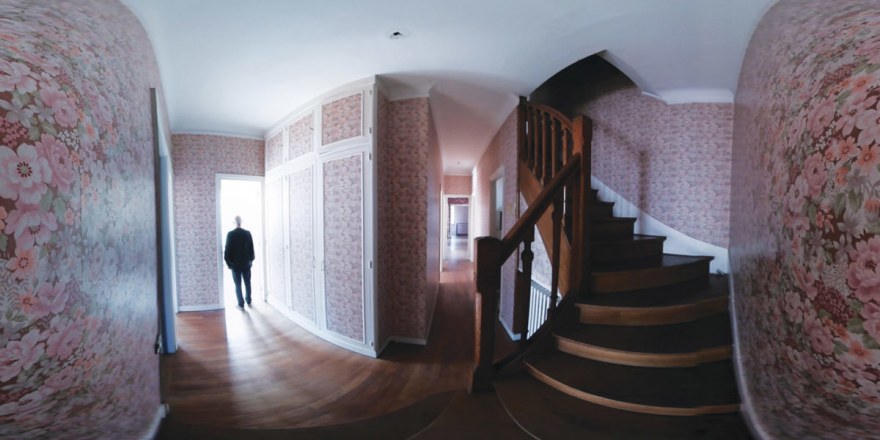Lunch with My eyes are gone
An interview with Laura Haby, director of My eyes are gone
How did you come up with the idea for My eyes are gone?
The inspiration for the film comes from meeting a peculiar person with a very specific way of talking about death. It’s the end of a process started in 2013 with En apnée [Holding Your Breath], a short documentary where you can already hear his idea – this narcissistic, aesthetic need to appropriate death. An illusory way of getting control of it so he’s no longer afraid of it. In my mind, I wanted to add movement to his monologue; I wanted the film to move forwards based on words, on his speech.
What interested you about this man’s monologue and his pain?
I was more interested in his desire for eternity than his pain. In the character’s monologue, you can sense a desire to break with the world, a suffering, but he’s basically someone who is unable to die.
Is his relationship to memory particularly important to you in this film?
What really interested me was one person’s memories with all the little details about how we hope to live and not live.
What did the question of scars and reconstruction mean to you? Can we talk about a rebirth?
He often brings up the theme of damaged or ill bodies and his descriptions of them are pretty gruesome. The character is obsessed with bodies, with bodies that have been miraculously cured. And also, paradoxically, with “a desire to return to the death from which he has awoken”.
What do you think about the character’s disappearance: does he die or simply leave?
The question of death or departure can remain open. In shaping the film, there’s a game between appearance and disappearance. In limbo, as the camera sweeps the apartment-maze’s wallpaper, we achieve a sort of emptiness of the gaze. This emptiness heightens our hearing. As we turn back to him, to his earthly presence, we find ourselves looking at a living person, a living body.
After first looking into Félix’s painful medical world, you then turn towards Marie. I felt like I was diving in the scene – how did you create the lighting, the shadows, Félix’s body?
During the night in which the film takes place, the location is revealed by lights and shadows. The camera hovers around, the idea of death hovers until the end in a precipitous dive when the body hits the truck then the wall. That idea enshrouds the character. The character is alive as he speaks, he does sit-ups, he keeps in shape. What interested me is that his date with death can also be read as a romantic date.
In the third part of the film, you tackle his questions about his own death. What interested you about this aspect of his monologue?
The film consists of three parts, three movements, that correspond to three moments of the monologue: the accident, Marie’s love and finally death. The third part is when the camera stops turning. Movement stops. It’s when the character brings all his personalities, all his “I”s, into play. Right up to the end, he wants to have the image that he’ll have of himself and that he’ll let others see. At the same time, there’s something vain in all that when we hear him listing everything that will happen to him, whether it’s a bullet in the head or the chest, suffocation, falling from the fifth floor. What he wants is control, right up to the end so that, essentially, he only keeps something that belongs to the human race – a certain dignity and elegance. I guess the film discusses the idea that something should be registered: the right to manage one’s own death.
What sort of freedom would you say the short format allows?
Obviously with all the sound material that I used, an hour-long film would have been unbearable for the audience. The short film form allows you to keep the audience’s attention and invite them to think using their ability to listen, to hold up to such a singular discourse. It also gave us the formal freedom of long, circular panoramic shots.
My eyes are gone is being shown in National Competition F9.








